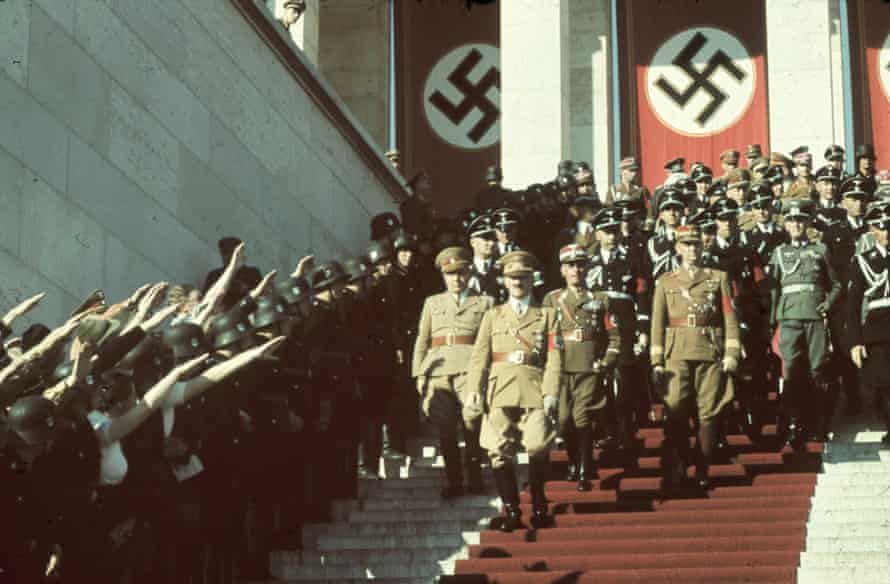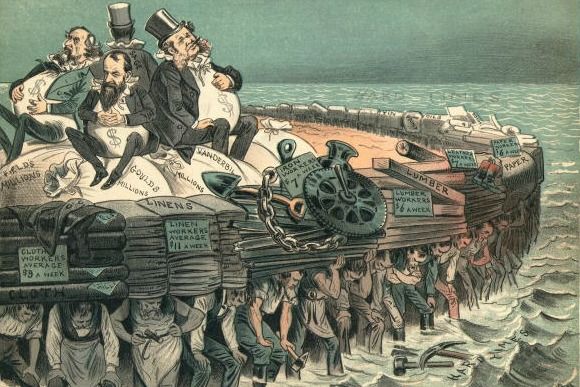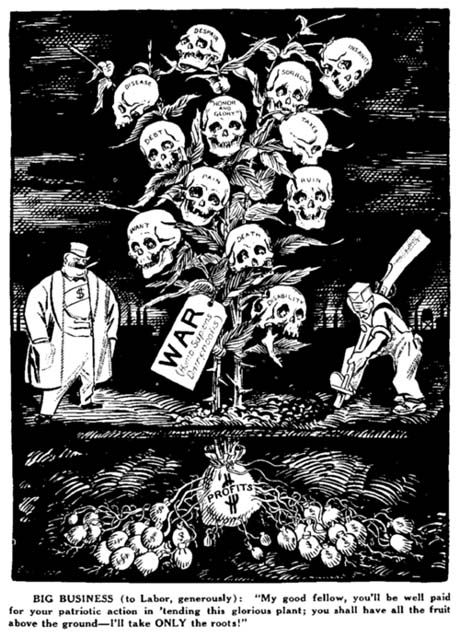
I shall be
The Socialist View of War: An Urgent Review
Text/Fries Fries
Correction/Mr.K, Bruce Yu
Preface: Position-Based Information and Socialist Theory as Value Judgments
Russia's initial statement was that Russia would conduct exercises around Ukraine and promised to withdraw its troops, but on the 21st it recognized the independence of the two divided areas in eastern Ukraine and announced that it would send troops to "maintain peace" . On February 24th, at 5:00 a.m. Ukraine time, Russia began a full-scale invasion of Ukraine.
After the outbreak of the war, the first thing that catches the eye are rumors flying all over the sky, different information from different positions, and interpretations from various experts. What should we as socialists believe before disaster? Where should we stand?
Like a long time ago, I made the same mistake again, I made "identifying the event" my main task again, and I have stated many times that I will no longer discuss the truth of the event. Although the fact of objectivity is independent of personal position, it is not uncommon for people to accept hearsay information on the basis of their position alone, on the contrary, it is a universal phenomenon, and it occurs almost in among the holders of any position.
This article is an "urgent" general reading. I will not discuss the role of Russia and Ukraine in the war, nor will I discuss the actual appearance of events. This article will only discuss the view of war from a socialist perspective.
Nationalism: an urgent reminder
Nationalism, a topic that has been "discussed" in the academic society recently, however, because of the events that happened, I think it is very necessary to remind the general socialists of their attitude in the face of "national contradictions".
"Workers have no fatherland. They must not be deprived of what they do not have." - Marx and Engels, The Communist Manifesto
Conflict between nations has been the main external reason for almost all wars in history. Pursuing "the revival of the Germanic nation" and dealing with "contradiction with the Jews" were the main external reasons for the Nazi German government to declare war. Pursuing "the rise of the Yamato nation" and dealing with "contradiction with European and American powers" were the main reasons for the militaristic Japanese government's declaration of war. external reasons. What they have in common is that they emphasize the oppression of their own nation and thereby justify the necessity of national revival. But as mentioned in "The Taxonomy of Humanity", this narrative method is dangerous, passive national contradictions have the possibility of forgery, and the cost of the prosperous bourgeois government is lower than that of other means of domination.

Nationalism, as the main contradiction of the external manifestations of different regions in history, has lost all value in the twenty-first century today, and its current The fundamental meaning that still exists is to provide the ruling class with excellent propaganda methods, whether passively or actively. A "national zeal" cannot liberate the workers, but can only accomplish the goals of the bourgeoisie - external expansion and transfer of domestic contradictions.
bourgeois war
"Marx said: International wars in which capitalists compete for mutual interests are meaningless. Only domestic class wars can liberate mankind. In the three years of the European War of the Republic of China, many lives were lost and countless moneys were spent. What did they get? In the sixth year of the Republic of China, the Russian workers rose up for revolution, overthrew the capitalist government, succeeded in the labor dictatorship, and opened up another bright road in the world. What is the significance of its value? The October Revolution in Russia and the Paris Commune were the result of the working class using its own Strength, to seek the true equality and freedom of human beings, their meanings are the same, but success and failure are different. Therefore, we can say: the Paris Commune is a bright flower, and the Russian Revolution is the happy fruit of the Russian Revolution-Russian Revolution He is the successor of the Paris Commune. Now the general capitalists propaganda say: "War abroad is beneficial, war at home is useless. But we have to go further: "An international war in which capitalists compete for mutual interests is meaningless, and an international war in which capitalism is overthrown is meaningful; a civil war in which warlords fight for power and profit is worthless, and is overthrown by the oppressed classes." Only the civil war of the oppressing classes has value. "The general nationalist faction advocates the saying that "sacrifice for the motherland is the supreme honor". This is the deception of the bourgeoisie. We must not be deceived by them! This is the second point that should be noted."— —Mao Zedong, "The Significance of Commemorating the Paris Commune"
Since the use of nationalism as a justification for war is indefensible from any point of view, what really shapes wars that involve countless innocents in disasters? Who are the beneficiaries of the war?
"What's the reason for this cruelty, this stupidity? A million workers came from Japan to kill and maim thousands of Chinese, why would a Japanese worker attack his Chinese worker brothers and force them to defend themselves? Does the death of the Chinese benefit the Japanese workers? No, how will they gain anything? So, God, who will profit? Who should be responsible for sending Japanese workers to China on such a killing mission? Who will profit from it? How can it be possible to persuade the Japanese workers to attack the Chinese workers - their brothers in poverty, their companions in pain? Is it possible for a small group of rich people, a small class to persuade a million poor people to attack And trying to destroy a million poor people like themselves so that the rich get richer? That's a horrible idea! How did they persuade these poor people to come to China? Tell them the truth? No, if they knew the truth , will never come to China. Do these rich people dare to tell the workers that they just want cheap raw materials, a bigger market and more profits? No, they just tell the workers that this war is for "racial destiny", For "the glory of the emperor" and "the honor of the country", for their "emperor and country". Ridiculous! Absolutely ridiculous! The agents of such a war must be like the agents of other crimes such as murderers, It has to be chosen from among those who might profit. Will 80 million Japanese workers, poor peasants and unemployed workers profit from it? Throughout the history of wars of aggression, from Spain's invasion of Mexico, England's invasion of India to Italy's invasion of Ethiopia, these so-called Did the workers of the "victorious" countries benefit? No, they never benefited from the war. Did the Japanese workers benefit from their own natural resources, gold, silver, iron, coal, and oil? Long ago, They no longer have natural resources. Because they belong to the rich and the ruling class, and hundreds of miners still live in poverty. So how can they plunder China's gold, silver, What about iron, coal, and oil? Don't the rich in one country appropriate the wealth of other countries for their own sake? Don't they do it all the time?" - Bethune, Trauma
As Marx said in the "Manifesto", "The need to continuously expand the market of products drives the bourgeoisie to run around the world. It must be settled everywhere, developed everywhere, and established everywhere." The total wages of workers are always less than The total amount of commodity value in the market, resulting in a surplus of commodities. The surplus of commodities is one of the causes of the crisis of capitalism, and in order to avoid it, the bourgeoisie has several methods, the first is by investing the surplus value that is robbed from the workers, that is, "profit" in new factories and factories. Among the facilities, the purchasing power of workers is increased by creating more jobs to increase the total wages of the working class as the main body of buyers in the market. The second method is war. Through direct expansion, while expanding the market, it also has more cheap laborers available for exploitation in the process of colonization. In the process of the expansion of the bourgeoisie of various nationalities, there will be contradictions between the bourgeoisie of different nationalities. In capitalism, the means of production are resources that are absolutely privately owned by the bourgeoisie, and limited resources lead to tensions within the bourgeoisie. The less, which means that the possibility of domestic crisis will become higher.

"It is worth noting that these leading British bourgeois statesmen saw clearly at the time the connection between the so-called purely economic and socio-political roots of modern imperialism. Chamberlain preached that imperialism was "correct, sensible and economical" He specifically cited the competition from Germany, the United States, and Belgium that Britain is currently encountering in the world market. The capitalists said that the way to save it was to implement monopoly, so they created cartels, syndicates, and trusts. The politics of the bourgeoisie The leader echoed that the solution was to impose a monopoly, and hurried to seize the undivided lands of the world. According to Cecil Rhodes's close friend, journalist Stead, in 1895 Rhodes had Speaking of his imperialist claims, Rhodes said: "I attended a meeting of unemployed workers yesterday in the East End [Workers' Quarter]. I heard a slice of 'bread, bread! ' shouts. On the way home, I mulled over what I saw, and it turned out that I believed more than ever in the importance of imperialism... One of my long-term aspirations is to solve social problems, that is, to save the bloodshed of the 40 million inhabitants of the United Kingdom of civil war, we colonialist politicians should occupy new lands to resettle the surplus population and find new sales areas for the goods produced by factories and mines. I often say that empire is a matter of eating. If you don't want a civil war, you should be an imperialist. "" - Lenin, "Imperialism is the highest stage of capitalism"
It can be seen from this that the war started entirely out of the interests of the domestic bourgeoisie. An international war launched by the bourgeoisie to snatch resources is exactly the same as the plundering of resources between tribes in primitive society. What has it brought to the proletariat of all countries? There is only an empty "sense of national honor" and a capitalist system "extended" by the relaxation of class contradictions. It is the small and poor working class who fight for the interests of the bourgeoisie in wars, who fight for the initiators of the war and their fellow workers who are in the same situation. Their corpses are all over the place, but all they get is the hypocrisy of the bourgeois government. a few words of praise. A large amount of resources will be consumed in war. At the same time, these consumption of resources cannot create any value that can be used by people like production activities. These resources are wasted in the war. The product of the war - the consequences of the scarcity of resources is to be borne by the proletariat, the bourgeoisie does not always reinvest the surplus from the workers' exploitation into the market, most of it goes into their own pockets, and therefore In the event of a disaster, they always have at least the resources that will keep them alive, even if the quality of life remains undiminished.
The way out for socialists: where we stand
War is inevitable in the capitalist world, but the intensification of contradictions due to the monopoly of resources is something that only capitalism has. In socialism, although resources are still limited, the brothers who adhere to internationalism share the resources they need for production and construction, so there will be no internal class contradictions due to lack of resources. The problem of war, like the problem of class, cannot be solved within the framework of capitalism. For us socialists, the only way to solve the war lies in the violent overthrow of the dictatorship of the bourgeoisie by the proletarian revolution. We should not pay too much attention to the relative legitimacy of the parties in the war launched by the bourgeoisie. We should return to the perspective of class and rethink the cause of the war and its way out.
Neither supporting Ukraine nor supporting Russia will have any positive effect on resolving the war and bringing about peace, and it is even more absurd to call for the military intervention of European and American countries (although I don't think there is any possibility). Any response by the European and American countries, whether it is economic sanctions or military intervention, will not bring peace, at least not permanent peace.
"Frontline soldiers cannot separate the frontline from the country and solve problems by themselves. Frontline soldiers are part of the country. As long as the country is at war, the front line suffers. There is no way to do it. The war is started by the ruling class and it needs to end. Only by working-class revolution. Whether peace can be achieved soon depends entirely on the development of the revolution. Some people say very well, let us end the war immediately, no matter what they say, without the development of the revolution, the war will not end When power is transferred to the Soviets of Workers, Soldiers and Peasants' Deputies, the capitalists will definitely oppose us: Japan will oppose, France will oppose, Britain will oppose, all governments will oppose. It is the capitalists who oppose us, and the workers who support us. Then the wars waged by the capitalists will end. That is my answer to the question of how to end wars." - Lenin, War and Revolution

References:
Mao Zedong, The Significance of Commemorating the Paris Commune, https://www.marxists.org/chinese/maozedong/marxist.org-chinese-mao-1926-3-18.htm
Chris Harman, What Is the Meaning of Marxism, https://www.marxists.org/chinese/chris-harman/1997/06.htm
Vladimir Lenin, Imperialism is the highest stage of capitalism, https://www.marxists.org/chinese/lenin/15.htm
Vladimir Lenin, War and Revolution, https://www.marxists.org/chinese/lenin/mia-chinese-lenin-19170514.htm
Karl Marx, Friedrich Engels, The Communist Manifesto, https://www.marxists.org/chinese/marx/01.htm
Like my work?
Don't forget to support or like, so I know you are with me..
Comment…